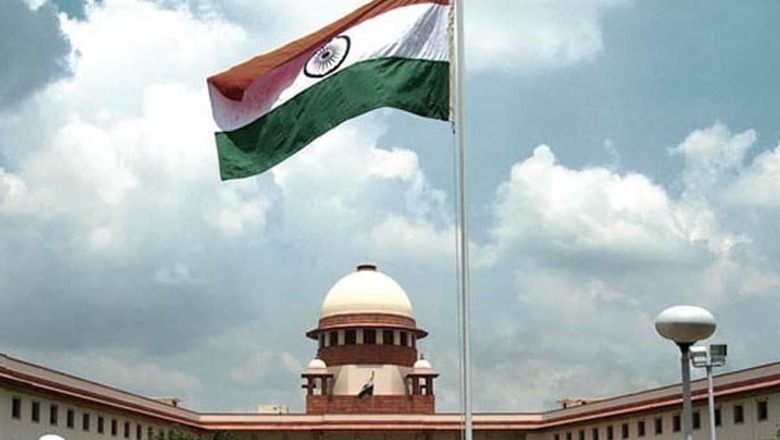
views
New Delhi: ‘Justice must not be only done, but also seen to be done’.
The Nirbhaya rape case verdict delivered last year by the Supreme Court was perhaps one which kept true to the above mentioned legal tenet.
The verdict upheld death penalty for the men who raped and brutally violated a 23-year-old paramedic student onboard a moving bus in south Delhi on the night of December 16, 2016. The woman succumbed to her gruesome injuries days later at a hospital in Singapore where she was taken for treatment.
The top court had last year upheld the death penalty to four convicts —Mukesh (29) Pawan (22), Vinay Sharma (23) and Akshay Kumar Singh (31), saying the "brutal, barbaric and diabolic nature" of the crime could create a "tsunami of shock" to destroy a civilised society.
Dipak Misra, now the Chief Justice of India, has led the bench which awarded the death sentence. Delivering the verdict, he had called the act as “a tale from a different world” where the “appetite for sex” was such that no one cared about the life, dignity and “identity” of a woman.
Justice Bhanumathi, too, wrote a concurring judgment where she stated that this act had shocked the “collective conscience” of the society.
Now, when the apex court gears up to deliver its verdict in the review petition filed by the convicts, one of the important aspects to look into is do the convicts really deserve the death sentence? Was it indeed a rarest of the rare case or was the verdict a result of the human emotions attached to it?
On the last day of arguments in May this year, advocate AP Singh who was representing Vinay Sharma and Pawan Kumar had pleaded before a CJI-led bench of Justices Bhanumathi and Ashok Bhushan that death penalty was nothing but a form of “cold-blooded killing in the name of justice”.
The review petitions that were filed before the court are from two lawyers representing the four convicts on death row. Advocate ML Sharma has represented Mukesh Singh, while Advocate AP Singh represented the others.
The primary point of argument relied on by advocate Sharma was the dying declaration recorded by the Delhi Police from the victim, who was dubbed ‘Nirbhaya’ by the media and activists. The dying declaration was recorded on December 21, 2012, by the investigating officer. ML Sharma argued that Mukesh’s name does not figure in it.
Next, the counsel also referred to the element of alleged custodial torture the convict had to go through. ML Sharma had also approached the Delhi High Court earlier, stating that the disclosure statements obtained from him for the purposes of evidence was not reliable as they were taken after custodial torture.
Sharma then showed the driver’s licence recovered from Mukesh, which stated that it was for two-wheeler vehicles and not heavy vehicles like the bus which Mukesh is alleged to have driven during the rape.
Lastly, the phone call records of Mukesh were also shown to the Supreme Court bench. The records reportedly showed that a call was made at 08:54 pm to accused Ram Singh, which highlighted the “infirmity” of the statement given by Nirbhaya or her friend. Ram Singh later committed suicide in Tihar Jail.
After the top court reserved its verdict on the plea by Mukesh Singh, advocate AP Singh, appearing for Vinay Sharma and Pawan Kumar, presented his arguments.
Singh primarily rested his case on how reforming the individuals would be more important than meting out death penalty to them. He said the court must look at the mitigating factors in the case which essentially was how the accused were from poor families and how “execution only merely kills the criminal but not the crime”.
He stressed on the point that the convicts did not have a criminal record and were not “habitual offenders”. However, Special Prosecutor Siddharth Luthra differed and stated that the case fits every parameter of a ‘rarest of the rare’ case.
The first victory for the prosecution had come forth in 2013 when after a year of the crime in September 2013, the trial court found the accused guilty under, inter alia, sections 365-366, 376(2)(g), 377, 302 and 307 of the IPC, read with its section 120B.
The death penalty order was upheld by the Delhi High Court in appeal by judgment dated March 13, 2014 and, thereafter, by the Supreme Court.
However, the delay between the trial court verdict and the Supreme Court verdict was palpable especially when the Nirbhaya case was a trigger for the Justice Verma recommendations on criminal law and led to a slew of amendments in the IPC and the definition of rape.













Comments
0 comment